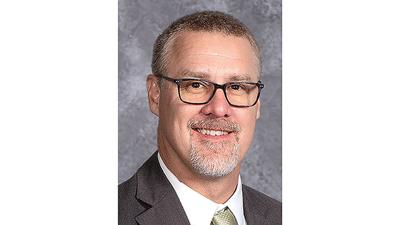De Soto School District students will have slightly different rules regarding cell phone use when they return to school Aug. 24.
The district already had a policy that prohibits students from using cell phones and other devices during class time, unless approved by the teacher for instructional use, and that rule remains unchanged.
What has changed is the disciplinary action for students who violate that rule.
According to the new policy, high school students who break the rule for the first time will be given three lunch detentions. Other students will be given a minor behavioral referral, which means the phone will be sent home with the student and the teacher will contact the parents.
In all grades, the device is to be confiscated, with the student allowed to pick it up after school. For the second offense, junior high and senior high students will face one day of in-school suspension, while younger students will receive another minor behavioral referral.
Third and subsequent offenses will trigger a day of in-school suspension for elementary students and the parent will be required to pick up the device from the school office. Older students will be subject to three days of in-school suspension and two Saturday schools.
Previously, for a first offense, a high school student faced one day of in-school suspension while younger students received written warnings and their parents were contacted.
After the first offense, the previous policy called for one day of in-school suspension for elementary students, two days of in-school suspension and one Saturday school for junior high schoolers and three in-school suspension days and two Saturday schools for those in high school.
Superintendent Josh Isaacson said administrators always are looking to refine the cell phone policy to better address the problem.
“Yes, it’s an issue. We’re going to continue the conversation. This is a tough issue, as electronic devices are more and more pervasive in our society,” he said.
“Then there’s the problem of bullying by electronics, students using them in the restrooms. Then you have some parents upset because they want their children to have a phone so they can communicate with them.”
Isaacson said he believes it’s good to teach students that sometimes they need to limit their cell phone use.
“In some respects, our students will need to understand how to balance their device usage when they get out in the workforce and in college after they leave here,” he said.
Board of Education member Beverly Wilson agreed.
“I am concerned about cell phones and electronic devices that students have in their hands, seemingly at all times,” she said. “It’s detrimental to learning.”
Other school board members said any policy about cell phone use needs to be consistently enforced.
Board member Tarrole Milfeld said she’s observed uneven enforcement of cell phone policies, particularly at the high school.
Wilson agreed.
“It has to be enforced,” she said. “Otherwise, I think it’s too lax. Teachers enforce it at different levels.”
Board member Michael Golightly said when some teachers allow students to use cell phones in class while others do not, it’s a problem.
“One teacher enforcing the rules on every student, and another teacher enforcing the rules not at all or on certain students, that’s not right,” he said.
“This (using cell phones in class) would drive me crazy if I were in a classroom today,” said board member Elaine Gannon, who taught in the district from 1975 to 2007.
Isaacson said he hoped the modifications to the regulations would lead to more enforcement.
“We noticed this was a problem last year,” he said. “The administration came to a consensus with teachers.”
The board voted unanimously July 21 to approve the new cell phone use policy.




